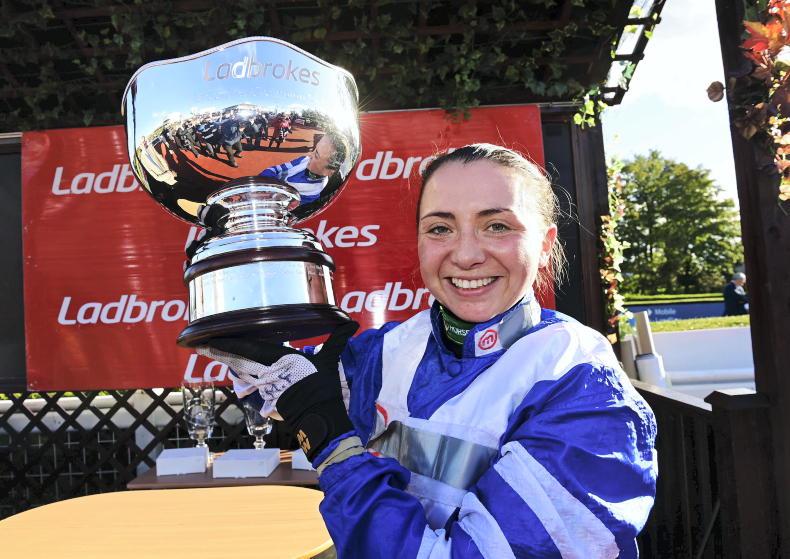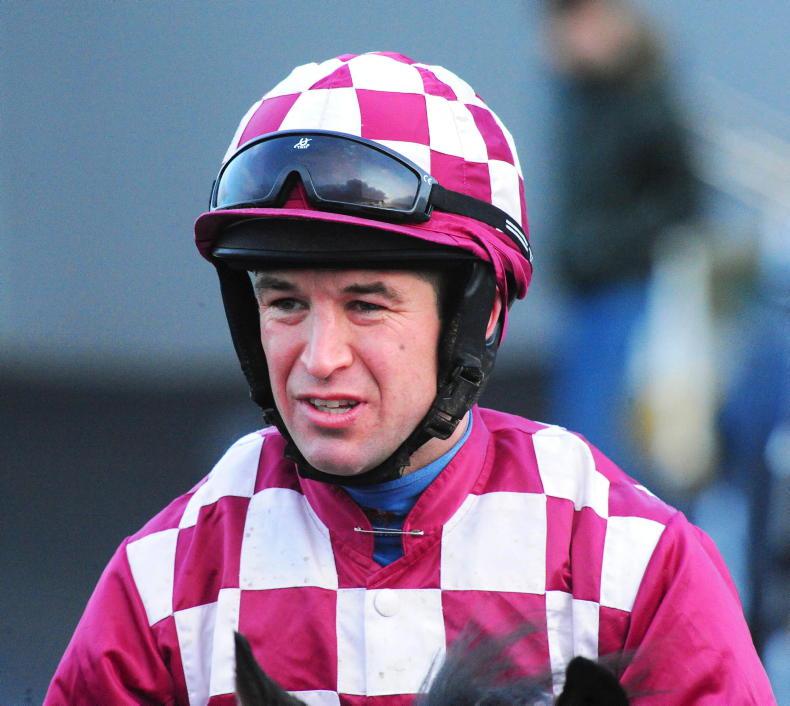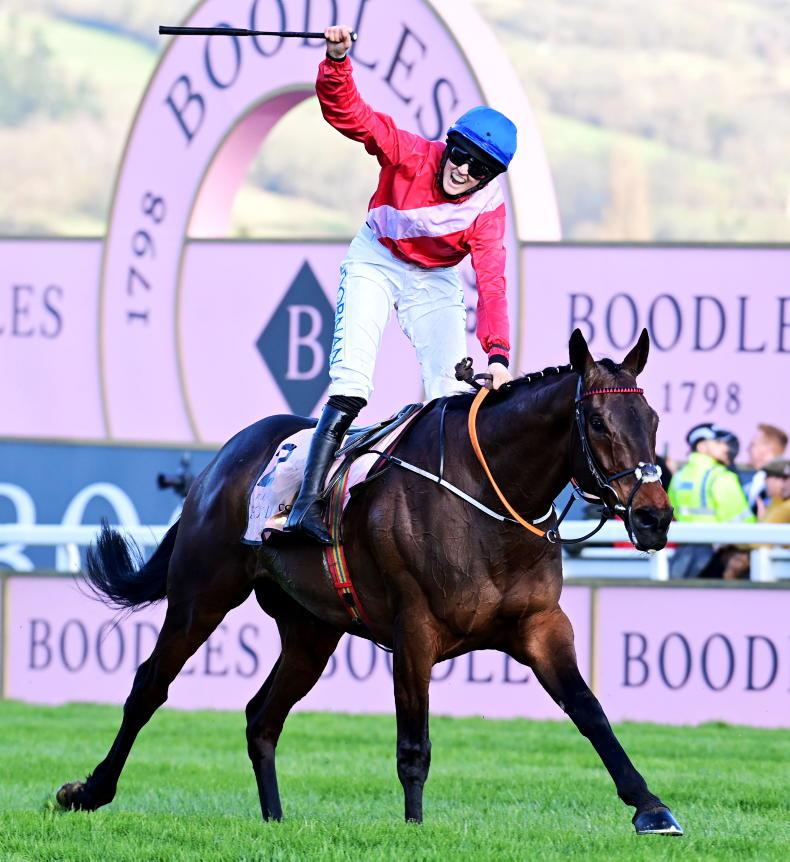THE written reasons for the British Horseracing Authority’s independent disciplinary panel’s judgment against Robbie Dunne were published on Thursday, and make for interesting reading, with a number of points made which previously received little focus in reporting.
Given the serious nature of the case, and the fact that it focuses on a weighing-room culture which is seen differently by those within and without, it’s worth examining some of those points.
The panel, consisting of Brian Barker, James O’Mahony and Alison Royston, found that Dunne’s riding on Lickpenny Larry at Leicester on February 13th 2021, and Buyer Beware at Market Rasen July 27th 2020 was deliberately intimidating towards Frost who partnered This Breac and Wisecracker in those races.
Stewards
Neither of those rides were flagged by the stewards at the time as being of concern, and neither elicited any comment in the formbook or on social media to suggest anything was unusual.
When Dunne was originally interviewed, the question of whether his riding in the above races was not put to him.
It is clear enough that incidents in both races saw Frost compromised, with Dunne’s mount jumping left at Leicester when she was on his outside, but jumping straight otherwise, and her mount at Market Rasen was squeezed against the rail by Dunne on Buyer Beware.
Taken on their own, it would be hard to be adamant that any wrongdoing occurred, but the incidents take on a less innocent look in light of the other evidence of an ongoing campaign of bullying and harassment, and it is in establishing that pattern that the panel has been forensic and damning of Dunne’s behaviour.
Wider evidence
Whether or not you agree with their verdict of Dunne’s riding in these specific instances, it needs to be viewed in the light of the wider evidence, and Frost’s concern that threats to “put her through a wing” were not just idle banter must have been solidified by the Market Rasen incident, in particular.
Re-watching the replays, I thought the Leicester incident was not entirely clear-cut, with the fact that fences in the straight had to be bypassed explaining why Dunne was riding away from the rail, and when Lickpenny Larry won at the track subsequently, the formbook notes that he jumped left at times.
Threatened
I was more unsettled by the Market Rasen contest, where Dunne appears to follow Frost through before riding unnecessarily close to her around the bend, when doing so did not enhance his chance of winning.
The fact that horse she was riding was the same one she rode on the day of the infamous altercation at Stratford earlier in the month may or may not be relevant, but the apparent coincidence is unlikely to be lost on the rider who already felt threatened before this specific instance.
What is also worth remembering is that this is the second case in which action relating to riding breaches has been taken by a higher power when not picked up by the stewards on the day after the landmark ruling in favour of Freddy Tylicki. In this case the panel has found a jockey to have ridden in a deliberately intimidating way, while no enquiry was called on either occasion by local stewards.
With no objection being made on the day, it’s possible to put excuses forward, but the overwhelming feeling is that jockeys are unwilling to highlight serious concerns at source, either due to a lack of faith in the stewarding system, a fear of what lodging an objection will do to their standing in the weighing room, or a combination of both.
That is not a healthy state of affairs, and needs to be addressed.
Appalling defence
What is also clear in the summary of this case is that if Robbie Dunne was let down, as has been suggested by some of his colleagues, then the BHA and PJA may be in some part culpable, but what he was most let down by was a truly appalling defence.
The approach taken by his representatives here seems to be to have been to throw as much mud as possible, hoping something would stick. The main target was investigator Chris Watts, who was characterised as biased on account of a close friendship with Jimmy Frost, but no evidence was produced to support this allegation.
The defence also suggested that the whole case against Dunne was back-fitted by Frost and her father after an alleged phone call to the senior rider in which a man with a ‘West Country accent’ threatened to break his legs.
Whether such a call was ever made could not be verified, and that must have been known to those presenting it as evidence of the Frost family as the villains of the piece.
As such, it merely reads like a colourful conspiracy theory. More importantly, the allegations made against Dunne were not of the “he said, she said” variety, but corroborated by others, and admitted in part by Dunne himself.
It is not impossible to find some sympathy for Dunne, and the fact that none of his colleagues felt that they needed to interfere may have led him to believe that behaviour of his which clearly crossed the line into harassment and bullying was, in fact, acceptable.
Obsession
It’s easy enough to believe that he was originally motivated by his feeling that Frost’s riding needed an intervention by a senior jockey (despite a lack of evidence put forward), and that he was increasingly riled by her determination to ignore his interventions.
That kind of brush-off can lead to obsession, and those are the signs that Dunne showed.
His overreaction after that fateful Stratford contest, when any interference his mount met at the hands of Frost was at worst minimal, and at best non-existent, should have been a red flag, but wasn’t.
But feeling a pang of sympathy for Dunne does not detract from the fact that he was guilty of the charges levelled against him, and those offering him support should not blame his accuser for his unfortunate situation.
Comments made about the culture of the weighing room immediately after the verdict proved incendiary, even if taken out of context, but the comments made by the panel about collective behaviour among jockeys were thoughtful and carefully worded.
The ethos of the weighing room is one which is intended to do useful service to all who abide within, and cannot simply be thrown out because it has had its failings exposed, but however much a self-policing society might strive to benefit its members, it must check itself against societal norms and laws.
Policeman
Allowing a loose cannon like Robbie Dunne to play policeman saw a line crossed, and those who profess to be his friends ought to have been aware that his behaviour was unacceptable.
That is an uncomfortable truth which needs to be acknowledged once the dust has settled, and by doing so, positive changes can be made.
That requires a degree of introspection and humility which has not been obvious in the clamour to support Dunne in the immediate aftermath of the verdict, but it’s not too late for bridges to be built.
An explicit statement of acceptance that Bryony Frost was justified in her actions would be a welcome catalyst for that much-needed change.




 This is a subscriber-only article
This is a subscriber-only article
 It looks like you're browsing in private mode
It looks like you're browsing in private mode










SHARING OPTIONS: